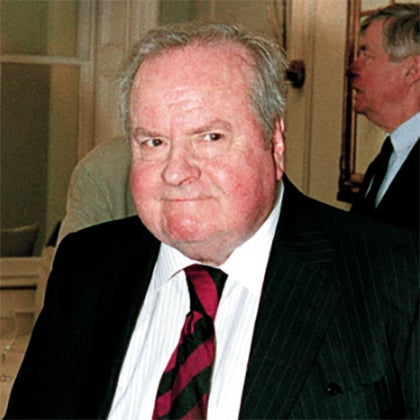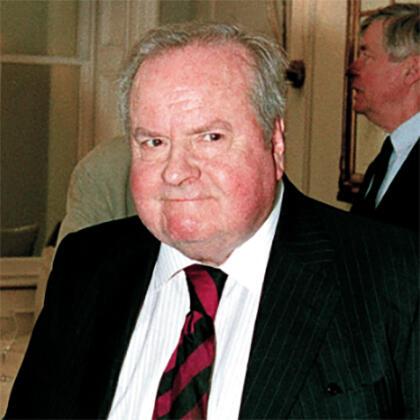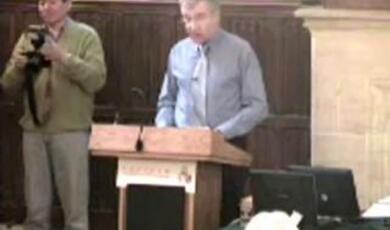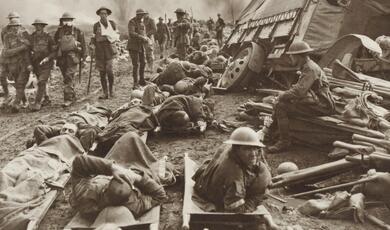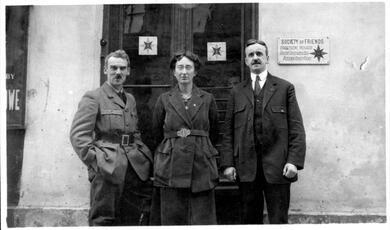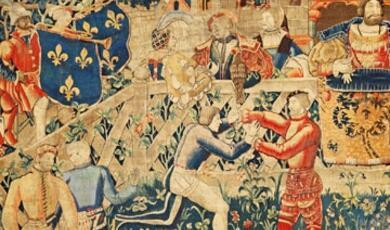1302 and All That: Papal Bulldozers through Seven Centuries
Share
- Details
- Transcript
- Audio
- Downloads
- Extra Reading
The Bull Unam Sanctam, issued on 18 November 1302 by Boniface VIII, subjected temporal to spiritual power and declared the Pope's authority over the world. Leo XIII, who died one hundred years ago, issued the Bull Apostolicae Curae (13 September 1896) determining the relationship between the Roman Catholic and Anglican Communions.
Download Transcript
1302 AND ALL THAT: Papal Bulldozers through Seven Centuries
Delivered by The Honourable Gerard Noel FRSL
Chairperson: Dr Richard Chartres, Lord Bishop of London
In the 8th century, the Pope's de facto temporal sovereignty became an established and officially recognised reality. As of the year 756 - a key date - the Bishop of Rome became king of a territorial dominion that was to last for eleven centuries. The origin of this papal kingdom is associated with the appearance, about the middle of the century, of a fascinating document. Known as the Constitutum Constantini it appeared to be an extensive grant of territory to the Pope (Sylvester I) by the Emperor Constantine himself. It was supposedly a reward for baptism given to the Bishop of Rome before the Emperor left for Byzantium in 330 and has become more famous in history as the "Donation of Constantine".
The document had a crucial influence in the medieval period and served as the basis of some of the papacy's most extravagant claims. It was first used against the Lombards by the Pope (Stephen II) who was negotiating with the Frankish King Pepin. As a result, the Pope made his first accretion of temporal and territorial power around Rome in 756. But Constantine, according to the Donation, had given the Pope imperial power not only over the Lateran Palace, but rulership over Rome and "all provinces, localities and towns in Italy and the Western Hemisphere".
The papal territories, however, did not begin to look impregnable until 11th century. By that time the Donation of Constantine began to be quoted specifically in papal documents and the Popes came to be seen as "successors not to Peter but to Constantine". It was not, however, until the time of Innocent III (1198-1216), that the Papal States received their definitive foundation. And it was under this most notable of Roman Bishops that the papacy entered into the zenith of its power, a power so immense that it totally dominated the whole of the 13th century, being climaxed by the breath-taking claims of Pope Boniface VIII. In a papal "bull" of 1302 (Unam Sanctam) that has become perhaps the most famous proclamation of theocracy in world history, Boniface declared that the Church was the supreme power on earth. Its "worldly" sword could be wielded by such as kings and soldiers but only at the command of "the priest" and for the sake of the church: "Whosoever therefore resists this power ordained by God resists God's ordinance… We declare: because of the need for salvation every human creature is subject to the Roman Pontiff". In the exuberance of another occasion he actually exclaimed: "I am emperor!" The date of this Bull - or "Bull-dozer" - was 18 November 1302, exactly 700 years ago.
Would such vast power have been accumulated by the Church without the "Donation of Constantine", which was exploited for so long with such devastating results? The question is intriguing for, in the 15th century, this crucial document was found to have been a forgery. It was now too late, however, to turn back the clock. Even the Reformation did not, after the first shocks, temper papal claims. "He who reigns in heaven", stated Pope Pius V in 1570 when excommunicating the Queen, Elizabeth I of England, "to whom is given all power in heaven and on earth, gave the one, holy, catholic and apostolic church, outside of which there is no salvation, to be governed in the fullness of authority, to one man only, that is to say, to Peter, the Prince of the Apostles, and to his successor the Roman Pontiff. This one ruler he established as prince over all nations and kingdoms, to root up, destroy, dissipate, scatter, plant, and build, so that the Holy Spirit might bind together a faithful people, united in the bond of mutual charity, and present it safe and sound to the Saviour." The papacy, as is evident from these words, had taken its cue from the heady days of the 14th century when Boniface had proclaimed his imperial destiny in such ringing tones.
In 1896, in his bull Apostolicae Curae, Pope Leo XIII declared Anglican priestly orders to be "absolutely null and utterly void". Since that time, certain presuppositions have arisen; such presuppositions include the assumption - no longer universally held - that Leo XIII's Bull was final. The Bull's supporters rely on the necessity for a "sacrificing priesthood" - unknown in the early Church - as the criterion for validity of Anglican orders. The English Reformation thrust was against an ecclesiastical mentality that could so complacently permit the ordination of hundreds of priests year after year, in order to keep going the (very profitable) late medieval Mass-system. Bearing in mind how tiny was the total population of England in the 16th century (about three and a half million) compared to today, certain representative facts and figures are startlingly relevant. H. Maynard Smith records that before the Reformation, bishops ordained a hundred or two hundred priests at a time. The Episcopal register of York shows that 262 priests were ordained there in 1510-11 alone. It must be remembered that most of such ordinands were "chantry priests", that is ordained solely to recite the office and say private Masses for the intentions paid for through the chaplaincies or chantries which provided their employment. The normal clergy attached to the cathedrals and country parishes were quite separate. This meant that there was a sort of roving "proletariat" of priests seeking their daily bread but not always finding it. A bizarre situation of clerical unemployment even arose when Smith described how, at St Paul's Cathedral, on the eve of the Reformation, "groups of priests hovered about the doors hoping for chantries and chaplaincies, but idle all the day because no one had hired them".
This event was on Mon, 18 Nov 2002
Support Gresham
Gresham College has offered an outstanding education to the public free of charge for over 400 years. Today, Gresham plays an important role in fostering a love of learning and a greater understanding of ourselves and the world around us. Your donation will help to widen our reach and to broaden our audience, allowing more people to benefit from a high-quality education from some of the brightest minds.


 Login
Login
